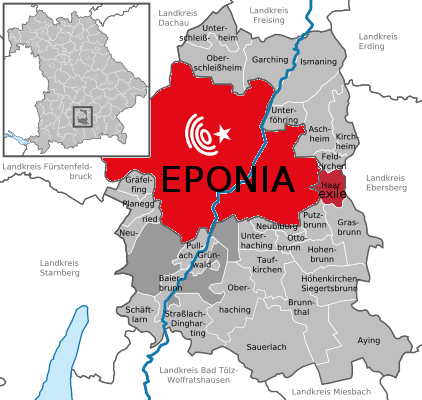

NOT a single patent blog is writing about G 2/19 at the moment. Nothing. We've checked. We're not surprised, either.
"Will EPO bring patents on life and nature to the UK as well?"A new comment from IP Kat (posted in the blog by Kant) said: "Apparently, Haar is indeed in Munich." So says a rigged panel? We shall see. We are going to publish the final part of our series in a moment (see Part 1, Part 2 and Part 3).
It is meanwhile being reported that the UKIPO is cooperating with the EPO. Is this the effect of Rowan? Recall "Stephen Rowan: From UK-IPO to Operation Coverup of Team António Campinos" (published recently).
Ben Wodecki (IPPro Magazine) wrote: "The EPO is able to help under its bilateral cooperation agreement with UKIPO, which entered into force in July 2018."
The 'Rowan effect'? Will EPO bring patents on life and nature to the UK as well?
To quote Wodecki:
The European Patent Office (EPO) has agreed to conduct some biotechnology patent searches for the UK Intellectual Property Office (UKIPO) to help tackle its large backlog of applications.
UKIPO said it has recruited and trained patent examiners in this area, but “remain[s] unable to deliver the timeliness that we want for our customers, particularly in relation to searches”.
The EPO is able to help under its bilateral cooperation agreement with UKIPO, which entered into force in July 2018.
"...external members of the Enlarged Board of Appeal can be problematic and help form a biased, rigged, stacked panel of judges. The final part of our series is about it and will be out soon. External members of the Enlarged Board of Appeal of the EPO can be hand-picked for 'favourable' (to Office management) outcomes."So British courts will soon have a connection to the EPO as well. Wodecki (IPPro Magazine) noted: "In March 2016, he was appointed as an external member of the Enlarged Board of Appeal of the European Patent Office (EPO)..."
As we shall show in our next post, external members of the Enlarged Board of Appeal can be problematic and help form a biased, rigged, stacked panel of judges. The final part our series about it will be out soon. External members of the Enlarged Board of Appeal of the EPO can be hand-picked for 'favourable' (to Office management) outcomes.
From Wodecki's article:
Her Majesty Queen Elizabeth II has approved the appointment of judge Richard Arnold to the UK Court of Appeals. Arnold served as a High Court of Justice judge in the Chancery Division from 2008 and was appointed to be judge in charge of the Patents Court in April 2013.
In March 2016, he was appointed as an external member of the Enlarged Board of Appeal of the European Patent Office (EPO).
During the high profile patent dispute between Warner-Lambert and Mylan/Actavis, it was justice Arnold’s rejection of Warner-Lambert’s arguments on the basis of lack of an inventive step that the Court of Appeal’s ruled as correct.
In T 0439/17 (published online 1 July 2019), the Board of Appeal of the EPO considered the circumstances under which a third party may intervene in an opposition. In general, a third party may intervene in opposition proceedings, after the opposition period has expired, if infringement proceedings relating to the patent have been started against the third party (Article 105(1)(a) EPC). The meaning of "infringement proceedings" under this provision has presented some difficulties, given the diversity of potential "patent infringement" related court proceedings (civil and criminal) throughout EPC member states.
[...]
KCC also argued that the admissibility of the accession need not necessarily be assessed at the precise time of the submission. Other subsequent events (e.g. the bringing of an infringement action), should also be taken into account. KCC pointed to Rule 89 EPC as providing the possibility for ex tunc assessment, in particular the wording "the [statement to initiate proceedings] is only deemed to have been made when the [fee] prescribed has been paid". The Board also dismissed this argument (r. 13). The Board commented that the wording used in Rule 89 EPC was used throughout the EPC and was not considered to have a retroactive legal effect. The appeal was dismissed.
T 0439/17 therefore confirms that pre-infringement evidence procurement procedures in national courts are not considered sufficient to allow a third party to intervene in opposition proceedings. The Boards of Appeal maintain that the intervention under Article 105(1)(a) EPC is to be considered "a procedurally exceptional situation, which is justified only by a substantial legitimate interest of the assumed infringer to enter the opposition proceedings" (T 1713/11, r.2.2). The BA thus seeks to prevent the definition of "infringement proceedings" in Article 105(1)(a) EPC from being elaborated to encompass national procedures beyond an infringement action per se. The onus is thus on potential infringers wishing to avoid lengthy and expensive national revocation proceedings to pay close attention to newly granted European patents, such that they can file timely oppositions of their own. The BA stresses that there can be no benefit of hindsight.
